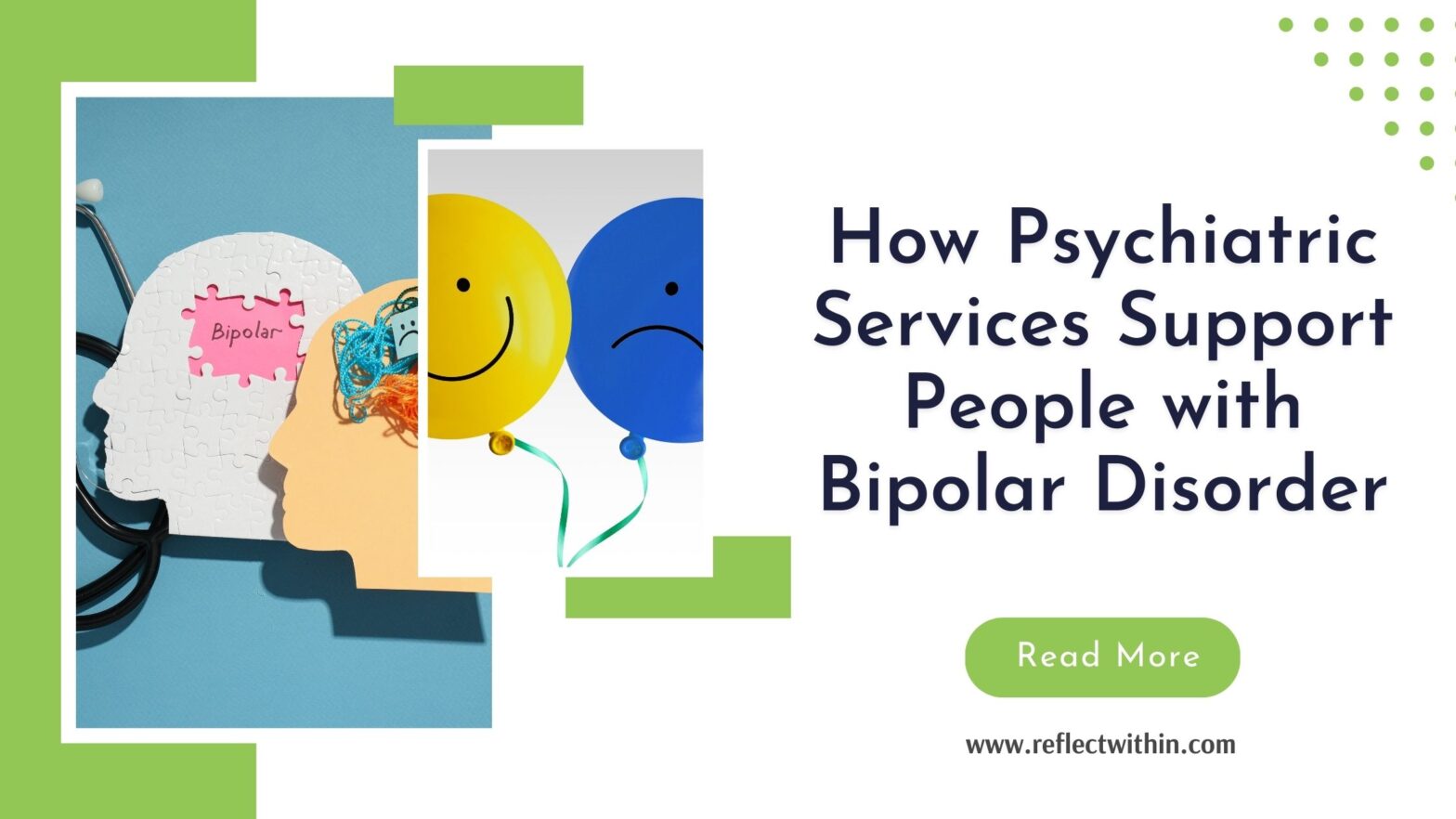Initial Consultation and Assessment
Early intervention is key. During an initial consultation, a psychiatrist conducts a comprehensive mental health evaluation that includes a detailed discussion of symptoms and medical history.
Confirming the Diagnosis
A diagnosis is confirmed through various standardized tools, ensuring the symptoms aren’t related to other conditions, thereby initiating a more focused treatment approach.
Treatment Options Offered by Psychiatric Services
Medication Management
Psychiatrists prescribe and monitor medications such as mood stabilizers, antipsychotics, and antidepressants. Regular check-ins are essential to monitor effectiveness and side effects.
Psychotherapy and Counselling
Options here include Cognitive Behavioral Therapy (CBT), Interpersonal and Social Rhythm Therapy (IPSRT), and family-focused therapy, each designed to manage symptoms and improve quality of life.
Support Groups and Group Therapy
Joining a group can be life-changing. Psychiatric services often involve group therapies, where patients share their experiences and gain support from others facing similar challenges.
Lifelong Support and Management
Regular Monitoring and Check-ups
Management of bipolar disorder is a lifelong commitment. Regular visits to a psychiatrist allow for medication adjustments and can preempt potential crises.
Crisis Intervention and Support
In severe manic or depressive episodes, immediate action is required. Psychiatric services are equipped to provide rapid and intense treatment during these critical times.
Personal Stories: Real-life Experiences with Psychiatric Services
John’s Journey: From Denial to Acceptance
John, a 40-year-old teacher, battled with denial before psychiatric services guided him towards a positive path of acceptance and management of his bipolar disorder
Maria’s Battle: The Lifesaving Role of Group Therapy
For Maria, group therapy was a turning point. It was through sharing her story with others that she found the strength to continue her battle and embrace her treatment plan.
Conclusion
he journey of living with bipolar disorder is filled with challenges, but it is important to remember that there is hope and substantial support available through psychiatric services. These services are not just about medications; they are about comprehensive, compassionate care that encompasses counselling, group support, crisis intervention, and more. If you or a loved one is struggling, reach out to a psychiatric professional. Help is closer than you think.


















